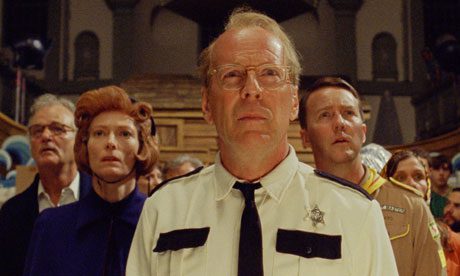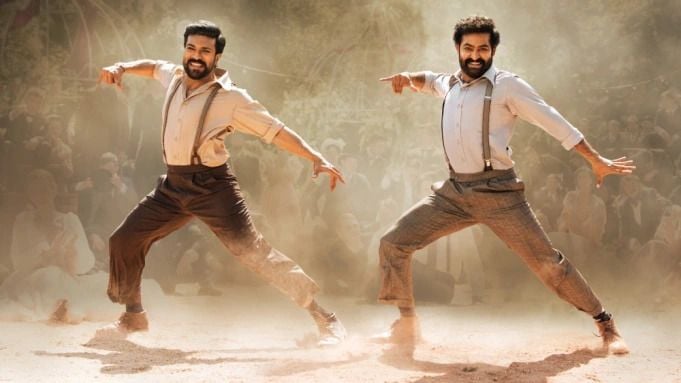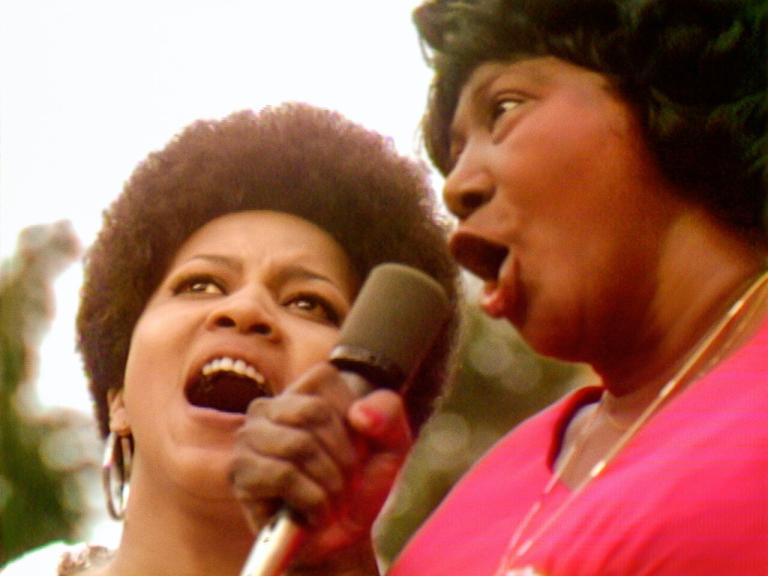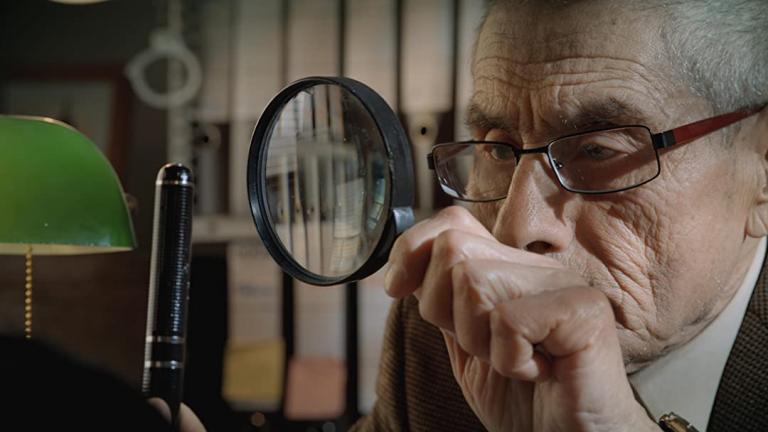A couple of years ago, rumors abounded that hipster auteur Wes Anderson might direct the new Spider-Man reboot. What kind of retro production design, indie music, and adolescent angst would surround Peter Parker? The possibilities were both intriguing and frightening. My sharpest film students at Pepperdine capitalized on the rumor to create a sly satire. Their trailer for “Wes Anderson’s Spider-Man” became an Internet sensation, launching Jeff Loveness into a gig writing for Jimmy Kimmel.
Thankfully for film fans, Wes Anderson didn’t get the job. And now we can see the wondrous results of his road not taken, Moonrise Kingdom. It is tempting to spend the Fourth of July flying across New York City with Spidey. My children will undoubtedly get ensnared in Marvel’s merchandising mayhem. Millions of moviegoers will even pay for a 3D upgrade, settling for the spectacular rather than the sublime. For those who associate summer with camping in the woods or idylls in Cape Cod, Anderson offers a glowing alternative to Spider-Man 4 (or is it 1b?). Moonrise Kingdom is an old fashioned marvel, a handcrafted regional hullabaloo. My ten and twelve year old (and I) loved it.
After reaching a creative dead end chronicling the contemporary man-child in The Darjeeling Limited, Anderson recovers his comedic mojo celebrating the nostalgic child-man in Moonrise Kingdom. It marks is a remarkable return to form, harkening back to the youthful bravado of the beloved, Rushmore. Moonrise Kingdom merges the requisite Anderson trademarks of quirky dialogue and moody French New Wave style into a celebration of young love. While the Anderson cabinet full of curios remains intact, the characters are not lost amidst the bric-a-brac. Set in the square times of 1965, Moonrise follows the misadventures of two plucky, 12 year olds across the island of New Penzance. Sam Shakusky resigns from the Khaki Scouts, sneaking off in a miniature canoe loaded with wilderness supplies. Suzy Bishop is bored with her parents and siblings holed up at Summer’s End, their New England Cottage on the tip of the island. They rendezvous in a field full of romance, anticipation, and fair degree of awkwardness.
Anderson displays such confidence in casting unknowns as the adolescent leads. The size differential between Jared Gilman (Sam) and Kara Hayward (Suzy) only adds to the charm. This odd couple demonstrates what children raised in foster homes or affluence may still find in common. Both are equally estranged from their families, alone with their islands of emotion. As an orphan, Sam’s problems are physical—he literally has no place to go—while Suzy struggles with the angst that leads to binoculars, berets and fantasy novels.
The runaways are pursued by clueless but committed adults, from a lonely policemen (Bruce Willis), to an earnest scoutmaster (Edward Norton), and married lawyers (Bill Murray and Frances McDormand). Moonrise Kingdom leans into the tension that arises when teens strike out on their own. Adults who have preached independence are shocked and horrified when adolescents act on what they’ve been taught. Sam may seem like a troubled child, but he has learned plenty of orienteering from the Khaki scouts. And Suzy’s books offer entertainment and wisdom for lovers on the run.
Moonrise Kingdom turns escape film clichés into comedic gold. It is rooted in detailed plans involving maps and coordinates. It celebrates sneaking out under cover of darkness. It is about battling the elements. It is about always being prepared. Adults understand how young ambitions can go awry. Despite our efforts to hedge against disaster, things happen that are beyond our control. But the warm nostalgia washing over Moonrise Kingdom celebrates those youthful moments when we feel anything remains possible. In Wes Anderson’s world, heroism involves remembering the mustard for a hot dog or packing enough 45s for the record player. Children share a beer with adults who have forgotten how to live or love boldly. Police chiefs and scoutmasters wear uniforms to cover up their insecurities. While Sam and Suzy shed their clothes on a secluded beach, getting back to a nature that their guardians fear.
Anderson counters the effects driven overload of Spider-Man by employing the classical music of Benjamin Britten. “A Young Person’s Guide to Orchestra” seems centuries removed from our electronic mash ups. Yet, Britten and Leonard Bernstein taught music appreciation through the medium of television just one generation ago. They gave us ears to hear the differences between brass and woodwinds. In Moonrise, Anderson waxes nostalgia for bassoons.
The sacred opera, Noye’s Fludde, by Britton also figures prominently in the film. At the Cannes premiere of Moonrise Kingdom, Anderson recalled performing the opera as a boy. Sam and Suzy meet backstage at a church performance of Noye’s Fludde. Khaki scouts like Sam will only be able to hit the high notes in the children’s choir for another year or two. As their voices change, these scouts want to take on adult responsibilities. Dramatic tension rises alongside a storm. Sam, Suzy and the scouts take to canoes. With barometric pressure building, they hide in the St. Jack’s choir loft behind animal masks. Will the adults allow Sam and Suzy to be together? Will Sam find a home?
How strange to declare that we care about the outcome. Moonrise Kingdom comes on like a midsummer lark, but this trifle has considerable depth. In a summer of cinematic shock treatments, Wes Anderson offers a genuine, juvenile refuge.














